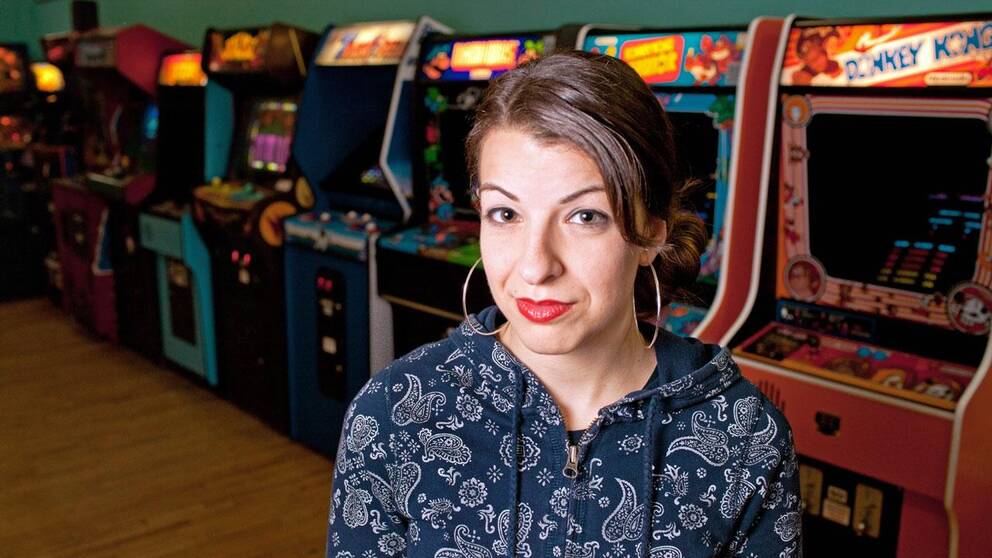For the fifth year in a row, Donna Day is organized - two days where female students and game developers from all over Sweden are invited to an event dedicated to gender equality in game education and the game industry.
To overcome the low number of female students in game development, the Donna network was founded ten years ago at the University of Sövde. As part of the work to increase gender equality in the game industry, Donna Day was born, an event that this year attracted record interest with 120 applications from all over Sweden.
Usually, Donna Day lasts a full day, but this year visitors are offered two days to attend workshops, listen to panels and network.
Jenny Brusk, Innovation Advisor and Business Coach at Skövde Science Park helped set up the Donna Network, which has been working for equality in game education and the game industry since 2011. To attract more girls to universities and polytechnics, they have worked on gender equality in various areas.
"We worked with, among other things, recruitment for game training, the learning environment and the content of the training," says Jenny Brusk.
To raise awareness of gender equality, a gender perspective is woven into all courses taught at the university. By the way, there are more and more women in gambling as well: read in our other publication what explains this.
"Engineering is not for girls"
The inequality between women and men in the gaming industry is expressed, among other things, in the fact that the labor market is dominated by men, as well as in male-dominated game characters.
"In character games, for example, there were no female characters at all, and if they existed, men created characters based on the male point of view," says Jenny Brusk.
On the other hand, games, where you can create your own character that you can identify with, are very popular among women, says Jenny Brusk.
In recent decades, computers and video games have been associated with boys and men, but Jenny Brusk believes that this was not always the case.
- Sometime in the 80s, digital games started to market much more to boys. Before, for example, you would often see a boy and a girl playing together in advertisements, says Jenny Brusk, who believes that the fact that technology makes up a large part of data and video games has influenced the uneven gender distribution.
- It's often said that "technology is not for girls", but technology is used in everything we do, so why is it talked about as if it's something for men? Says Jenny Brusk, who believes it's important to raise gender issues in technology in junior high school before high school elections.
"We depend on girls applying for training courses, the fewer who study, the fewer who can be employed, so it is important to start as early as possible with the issue of gender equality," says Jenny Brusk.
Seeing improvements
When Jenny Brusk started working in game development in 1996, she didn't know any other women in the industry in Sweden. Over the years, the number of women in the games industry has grown, and Jenny Brusk believes that there is progress on the equality front, albeit slow.
In step with new platforms to play on, such as mobile devices, the number of women of all ages has started to play more, and you also see that the percentage of women has increased in game development. When the Donna network started ten years ago, 10 percent of game students were women, in 2020 it was closer to 30 percent.
In addition to focusing on games students, Donna focuses on how to work with gender equality in the games industry, where Jenny Brusk has noticed a big impact on the gender equality issue.
- In the labor market, the HR issue has become much more active, there is more talk about how to work with hiring from an equality perspective and we are working more for an inclusive environment," says Jenny Brusk.
Equality in the games industry is improving, you're seeing more women in the games industry, you're seeing more female characters in games and also more sexual orientation.
"Diversity is taking more of a place in the gaming world," says Jenny Brusk, who believes there are two drivers pulling each other forward. One is a humanistic perspective and the other is economic.
"Companies realize that they are losing money by not getting a large group of non-male customers," says Jenny Brusk.
We think you will like it: 10 easy card games

